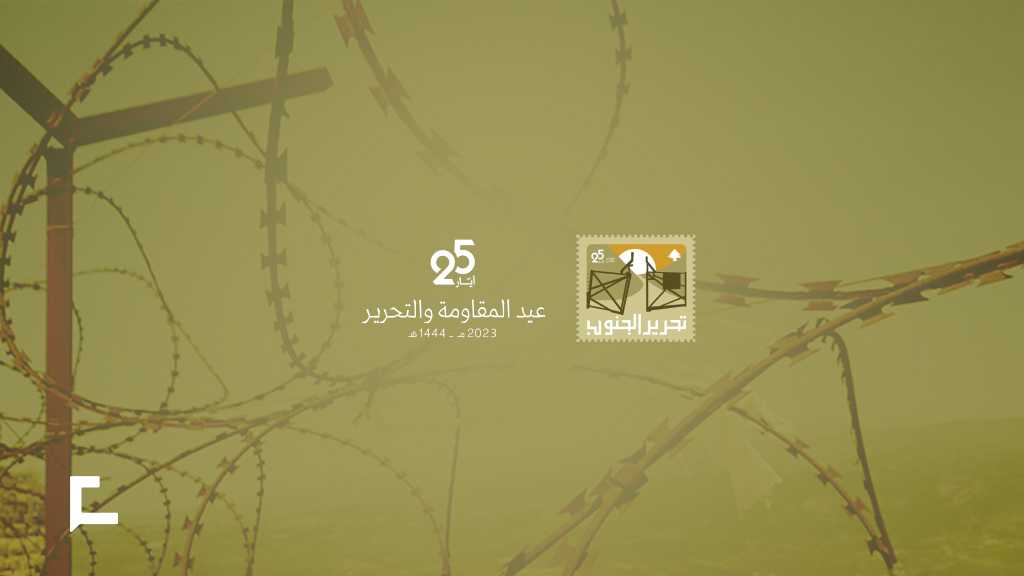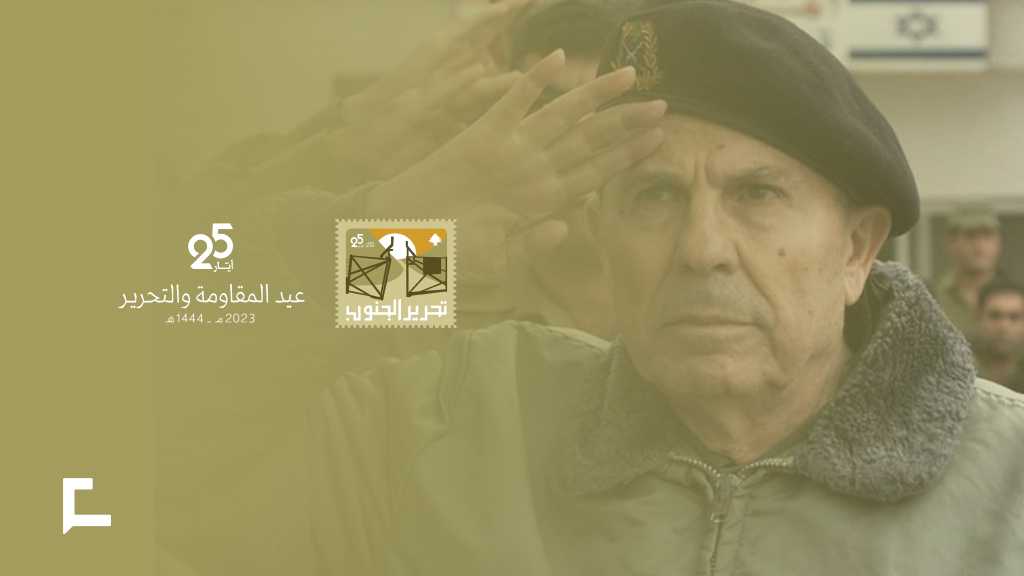A Day to Remember: Resistance and Liberation Day 2010

By Brenda Heard
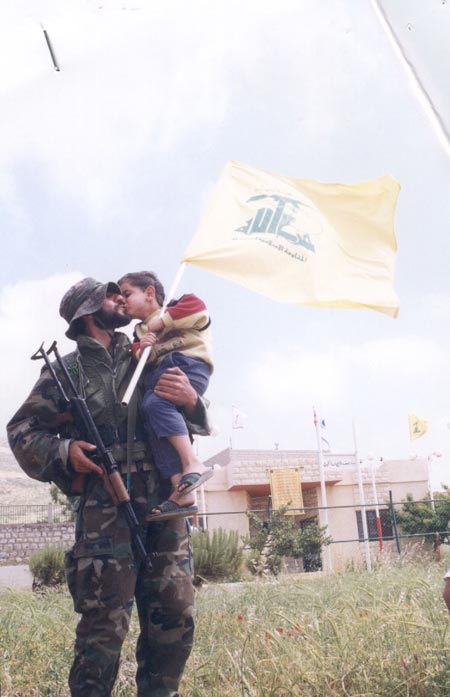 Anniversaries measure time. In one respect, they are an artificial concept. We decide, for instance, that twenty-five years of marriage should be celebrated, but we ignore the subsequent days as merely marking the path to twenty-six years. And reaching twenty-six years, though obviously a greater length of marriage, will not be celebrated with the same gusto as the twenty-fifth anniversary that boasts pre-printed greeting cards and foil balloons.
Anniversaries measure time. In one respect, they are an artificial concept. We decide, for instance, that twenty-five years of marriage should be celebrated, but we ignore the subsequent days as merely marking the path to twenty-six years. And reaching twenty-six years, though obviously a greater length of marriage, will not be celebrated with the same gusto as the twenty-fifth anniversary that boasts pre-printed greeting cards and foil balloons.
As the contrivance of marking anniversaries in many ways defies common sense, we might ask ourselves why we do it. Perhaps it is because the infinite, amorphous magnitude of time must be taken in bite-size pieces. It would otherwise be overwhelming. When we stop the passage of time-no matter how arbitrarily, no matter how superficially-then we are in effect looking for significance in what we accomplish with our lives.
On the 25th of May 2010, we observe the ten-year anniversary of the Lebanese Resistance and Liberation Day. A full decade has passed since the victory that baffled the Western world. A twenty-two year military occupation was virtually uprooted and expelled. The balance of global power was unhinged.
This tilting of the scales took time. It cost many lives. But in the end, the so-called mighty army created by the Americans for their Jewish state, an army protected politically by the Western superpowers, was soundly defeated by the persistent determination of ordinary Lebanese. These ordinary Lebanese were bound by their commitment to protect their homes and their families, their faith and their dignity. They fought back and they stood firm.
While the Western-"Israeli" alliance wanted to believe that they could intimidate and tyrannise the Lebanese into submission, they discovered that the more they pushed, the more the Lebanese resisted. The Resistance of Hizbullah would not relent. This bold defiance of the Islamic Resistance inspired Lebanese of other religious credence to focus on the fundamental principle they all shared: intolerance for subjugation. Their coordinated efforts paid off.
Failing to coerce either a physical or a political concession from the Lebanese, the occupying "Israelis" were forced to retreat. Beginning on the 21st of May 2000, as families returned to Southern Lebanon on the heels of the exiting "Israeli" troops, members of the Resistance ensured the peaceful nature of the transition. And herein lies the greater significance of this accomplishment. Herein lies the reason it is imperative to mark this anniversary in order to reflect on an achievement that far exceeds the laurels of military victory.
We should remind ourselves that the Lebanese had endured, day after day for twenty-two years, the harsh and bitter realities of life under military occupation. They had lost their homes, their farms and their businesses. They had suffered deprivation and betrayal. They had lived with the anguish of having their loved ones disappear-maybe learning they'd been imprisoned or murdered, or maybe never learning anything at all. They had faced fear and hopelessness, knowing that their very lives were subject to the whims of a merciless political power.
For twenty-two years the armies of the Western-"Israeli" alliance and their proxy Lebanese militia-enemy-collaborators known as the "South Lebanon Army" (SLA)-inflicted death and destruction in Lebanon. The statistics we casually list off are typically rounded, averaged and often disputed. There are so many deaths that the injured are seldom counted. The sole undeniable fact is that there were far too many.
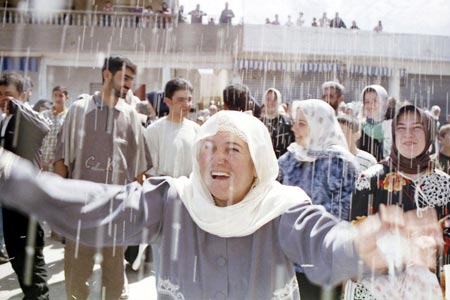
How do we begin to count the dead? We could stack up the civilians on one side and the Resistance fighters on the other. But, then again, those of the Resistance were not a standing army when the Zionists invaded Lebanon; had it not been for this military offensive, they too would have lived civilian lives.
We could stack up the Palestinians on one side and the Lebanese on the other. But, then again, the Palestinians would not have been in Lebanon had the Zionists not forced them there. Should they be viewed separately, when they were targeted as one faceless enemy?
We could survey sources to discern bias one way or another. There are dozens of reasons to inflate or deflate the body counts. Or maybe the repeated scenes of massacre were simply too murky with blood to be clinically accurate. Perhaps the man with the clip board came across a head lying on the pavement and ticked off the remnant as a victim, and then hours later he came across a headless body on a kitchen floor and ticked it off as another victim-not realising through his nausea that the two had the day before been one.
A few specific scenes will here suffice to illustrate the murderous rage of the "Israeli" military machine. The numbers give an idea of the magnitude. But more than statistics, these numbers represent individual people whose lives were grievously impacted.
Just warming up, in March 1978 the Zionist forces launched an aerial assault on Southern Lebanon. With the proclaimed intent of eradicating the Palestinians whom they had already driven from their homes, the "Israeli" assault destroyed 2500 homes and killed over 2000 Lebanese and Palestinians. Many fled to the North. Many of those who stayed behind were seized by "Israeli" troops on suspicion of supporting the Palestine Liberation Organisation (PLO). Those who were seized were then tortured and often killed.
In June 1982 the Zionist forces launched a series of air raids on Lebanon, while their army tanks paved the way to Beirut, leaving behind 9500 dead and 16,000 wounded. The army blockaded the city so that there were no supplies coming in; they cut both water and electricity. Then, for 70 days, "Israel" blasted Beirut with bombs and mortars. On 12 August, Beirut suffered 11 hours of non-stop, saturation bombing. Over 500 people died. The city was virtually destroyed.
In September 1982 over 8000 PLO members and their leader were exiled from Beirut. But this eviction, which seemingly met "Israel's" stated goal of ridding itself of the PLO, was not enough to end its military operations in Lebanon. Together with their collaborating allies, "Israeli" forces implemented the systematic murder of around 1500 Palestinian and Lebanese civilians, mostly women, children and elderly, at the Sabra and Shatila refugee camps. Over a two-day period, the people were penned in and wantonly slaughtered.
Their appetite for violence unabated, for sixteen days in April 1996 "Israelis" executed air raids over the whole of Lebanon, leaving massive damage to infrastructure, hundreds of thousands displaced, scores injured, and 250 dead. The Zionist rampage spared no one. The "Israeli" military wilfully bombed a UN installation at Qana, where some 800 civilians had sought refuge. Over 100 people were killed, with over a hundred more, including four UN soldiers, seriously wounded. Those who survived Qana, just as those who survived blitz after hateful blitz, suffered untold anguish. These are the dangerous and bloody days of military aggression and occupation.
These are the atrocities from which the Resistance fought to defend the Lebanese people.*
Under such circumstances, in the hours of regaining control, how easy it would have been to lash out against the enemy-collaborators who had suddenly found themselves left behind without the shield of their Zionist chiefs. Under such circumstances, how easy would vengeance have been? How tempting. How understandable.
But the goal of the Resistance had not been power; it had been liberation. And that goal had been achieved. They had not sought to gain political position. The Islamic Resistance understood and respected that the strength to liberate their land was derived ultimately from God. Thus to have flaunted their position as victors-to have succumbed to the temptation of vengeance-would have been to disparage the source of that victory. Such a move, though ever so common in the history of the battles of men, would have violated the fundamental principles of the Islamic Resistance. Consequently, the victors expressly prohibited any act of vengeance. Any enemy-collaborators who had not fled with the "Israelis" were simply turned over to the Lebanese Army for legal processing.
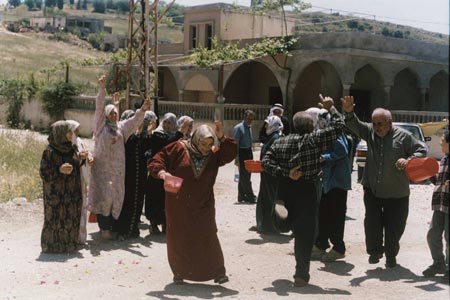
To be sure, the Resistance had earned the right to be proud, even jubilant, for having rid their land of enemy occupiers. But throughout the years of resistance, their conduct proved that the liberation was not simply about land. Liberation was essential to safeguard Lebanese lives, honour and dignity. And so it was with ease that the Resistance fostered coordination rather than competition amongst those who would resist subjugation, no matter their religious or familial affiliations. And it was only natural that, as they faced the vulnerable enemy-collaborators, the Resistance maintained their composure.
Had the Liberation been merely a jostling for military and political superiority, they might have celebrated, revelled in their newfound status, and rested on their laurels. But given the threat of renewed aggression from the Western-"Israeli" alliance, the Resistance recognised that Liberation was as much a process as it was an accomplishment. And so they maintained their vigilance. The sacrifices they had made would continue if they were to validate the victory of May 2000.
As we consider the tenth anniversary of Resistance and Liberation Day, we look for its significance. Why should we of the English-speaking world see this decade-old conflict as anything more than someone else's problem? Because in this turning point in Middle East history lies the hope of something noble.
On the one hand, we find a military occupation born out of greed and arrogance. If we are honest with ourselves, we will recognise in this aggression our own impulse toward self-preservation in this our society of the survival of the fittest. We do not want to be the weakest link who is cast away. This twenty-two year occupation represents the darker side of human nature: a dog-eat-dog mentality.
On the other hand, we find a Resistance born out of faith and a commitment to protect. Again if we are honest with ourselves, despite our part-time inclination to be self-serving, we have also admired those who abide by principles beyond themselves. We will, for example, cheer the good-guys in a film, and we will walk away from the experience with firm approval of the character who acts selflessly to achieve something greater for another character, or for a cause. Then more often than not, we shake off the notion of principle being rewarded. It's just scripted entertainment, we remind ourselves, it is not real life.
But the Resistance and Liberation was very, very real life. As real as it gets. Ordinary people embraced principle, defied the odds and chose Liberation. They could have run away. They could have shrugged their shoulders and resigned themselves to life on someone else's terms. But they chose instead to resist-and it worked. Above all, they continued to act with integrity. This was not because it was necessary in practical terms, for surely it would have been more expedient to eliminate enemy-collaborators on the spot. This was because to have set aside the integrity they had fought to defend would have as surely tainted the Liberation they had achieved.
In marking ten years of Liberation, we realise that by adopting a perspective beyond the here and now, the Resistance was able with its limited means to turn back the aggressor of seemingly unlimited means. We realise that this perspective enabled the Resistance to foresee and to overcome renewed challenges to the Liberation in July 2006. And we realise that an ordinary man can triumph with his principle intact. He will find the strength to do what must be done, and he will find the strength to acknowledge what must not be done. The Resistance and Liberation represents the brighter side of human nature: altruism.
*These are merely the highlights of a sustained campaign to devastate the people of Lebanon. More detailed descriptions can be found at Arab Media Watch here, Al Arabiya here and Mostakbaliat-Future here. Reports are also available from organisations such as Amnesty International here (Stopping the torture trade, February 2001), and Human Rights Watch here (Persona Non Grata: The Expulsion of Lebanese Civilians from Israeli-Occupied Lebanon, July 1999).



